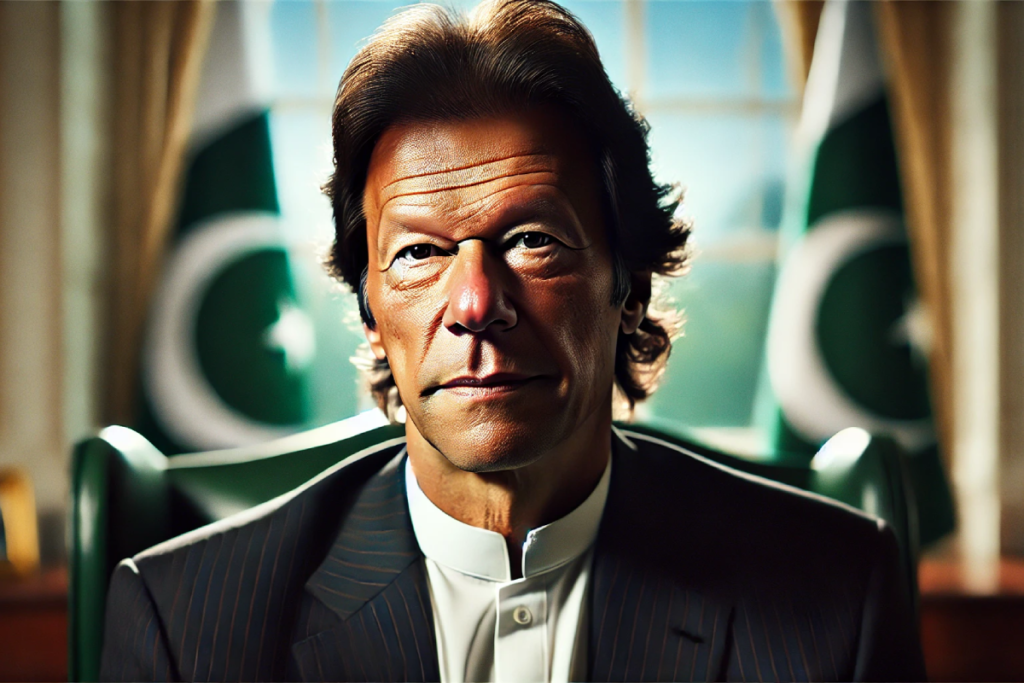In a fiery address to his supporters, former Prime Minister Imran Khan criticized recent constitutional amendments, claiming they were designed to extend the tenure of what he called the ‘three umpires’—a reference to key individuals or institutions influencing Pakistan’s political system. According to Khan, these amendments undermine democracy and are intended to maintain the grip of certain unelected entities over the country’s governance.
The Pakistan Tehreek-e-Insaf (PTI) chairman argued that these changes were part of a broader strategy by the current government to consolidate power at the expense of the democratic process. “The amendments are not meant for the welfare of the people; they are designed to secure the position of the three umpires,” Khan said during his recent speech.
The Controversy Surrounding the ‘Three Umpires‘
Khan’s use of the term ‘three umpires’ has sparked widespread debate. Although he has not explicitly named these figures, political analysts believe he is referring to influential individuals or institutions that hold significant sway over the country’s political landscape. In his speech, Khan emphasized that these individuals are the real power brokers behind the scenes, orchestrating moves that undermine the democratic process.
The former prime minister stated that the amendments were rushed through Parliament without proper debate or input from opposition parties. He argued that these changes will further erode the public’s trust in the political system and called for immediate reforms to ensure transparency in governance.
Constitutional Amendments: A Tool for Power Consolidation?
The recent constitutional amendments have been widely debated in Pakistan’s political circles. While the government claims that the changes are necessary for stabilizing the country’s governance structure, opposition figures like Imran Khan believe they are designed to extend the control of powerful, unelected forces.
Humanoid Robot Prototype for Home Use: A Glimpse into the Future
Khan accused the government of acting in bad faith by pushing these amendments through Parliament without allowing for meaningful debate. He highlighted that these changes could have far-reaching consequences for Pakistan’s democratic institutions, further weakening the role of elected officials.
“These amendments are a clear attempt to ensure that the same individuals continue to influence decisions that should be in the hands of the people and their elected representatives,” Khan declared.
Implications for Democracy in Pakistan
Imran Khan’s criticism of the constitutional amendments reflects broader concerns about the state of democracy in Pakistan. Many analysts agree with Khan’s assertion that the amendments could consolidate power among a select few, reducing the ability of ordinary citizens to influence political decisions.
Khan called on his supporters to stay vigilant and resist efforts to undermine democracy. “This is not just about PTI or Imran Khan,” he said. “This is about the future of Pakistan and its people. We must stand united against any attempts to curtail our democratic rights.”
He also urged the judiciary and civil society to take note of the situation and hold the government accountable for its actions. According to Khan, only a robust and independent judiciary can safeguard the country from such undemocratic moves.
The Road Ahead
Imran Khan’s allegations have added fuel to the ongoing political debate in Pakistan. As the country heads into a period of uncertainty, with elections on the horizon, the controversy surrounding the constitutional amendments is likely to play a significant role in shaping the political narrative.
PTI has announced plans to challenge the amendments in court and has called for mass protests across the country. Khan’s call for action is expected to draw significant support from his base, many of whom share his concerns about the erosion of democratic values.
As the situation develops, all eyes will be on the government’s response and the possible legal challenges that may arise. In the meantime, Khan’s criticism of the ‘three umpires’ and the constitutional amendments continues to dominate headlines, raising questions about the future of democracy in Pakistan.


